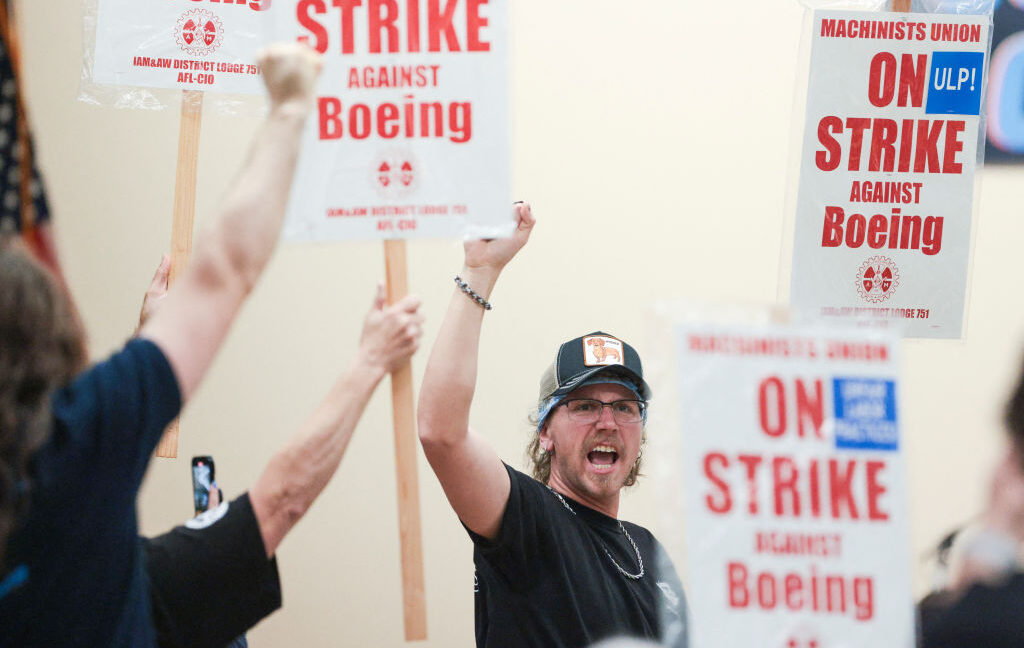More than 33,000 Boeing workers reached a tentative agreement Monday night to end a weekslong strike that quickly became one of the costliest strikes in recent history—estimated to have cost the US economy more than $9.6 billion.
Through their unions, International Association of Machinists and Aerospace Workers (IAM) Districts 751 and W24, workers in Washington state, Oregon, and California had previously rejected two inadequate Boeing offers while the company lost hundreds of millions daily. Negotiations had stalled until US Secretary of Labor Julie Su stepped in, IAM said in a press release, helping to restart talks and get to a deal that 59 percent of workers could agree on.
Under the proposed deal, workers will receive a 43 percent wage increase over four years, as well as a $12,000 bonus they can choose to receive in their paycheck, as a 401(k) contribution, or a combination of both. Additionally, Boeing agreed to match 401(k) contributions up to 8 percent.
According to The New York Times, Boeing said "the average annual pay of machinists will rise to more than $119,000 by the end of the contract, up from nearly $76,000 today, after those raises and other benefits are taken into account."
This is "life-changing" money for Boeing workers, IAM's press release said. The workers refused to accept Boeing's so-called best offer of a 25 percent wage increase back in September. While Boeing lost billions during the strike, workers collectively lost hundreds of millions in wages, CNN noted, but IAM District 751 President Jon Holden said that workers voted to stand their ground because "working people know what it’s like when a company overreaches and takes away more than is fair.
"Our members perform high-quality and flight-critical work for the airplanes we build and deserve a return on their labor investment that provides for the quality of life worthy of that labor," Holden said.
In a message to his reuniting team, Boeing president and CEO Kelly Ortberg said Boeing was "pleased to reach a ratified agreement." In an accompanying FAQ, Boeing said workers can return to work as soon as Wednesday but must return by November 12. Ortberg, who joined Boeing in August just ahead of the strike, considered it a top goal to end the strike so that Boeing could resume production on new 737s.
"While the past few months have been difficult for all of us, we are all part of the same team," Ortberg said. "We will only move forward by listening and working together. There is much work ahead to return to the excellence that made Boeing an iconic company. This is an important time in our history, and like generations before us, we will face into the moment together, and stronger as one team."


